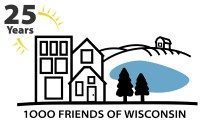Coming Fall 2025: Greater Green Bay Transportation Academy!
Applications open soon
If you have questions, please contact trevor@1kfriends.org.
Applications for the Greater Green Bay Transportation Academy will open later this summer. If you have questions, contact the Executive Director at trevor@1kfriends.org
The Community Transportation Academy is designed to help bridge the gap between community advocates and transportation planning entities. Over nine or ten weeks, participants learn about the fundamentals of transportation planning, hear from guest speakers with local and national expertise, and have the opportunity to propose a solution to a local transportation problem. Community members will come away from the Academy with skills and knowledge to advocate for safe and accessible transportation networks that work for everyone.

More information about curriculum and past Academy locations is below. If you want to learn more about the Transportation Academy program or want to bring it to your community, contact Executive Director Trevor Roark at trevor@1kfriends.org.
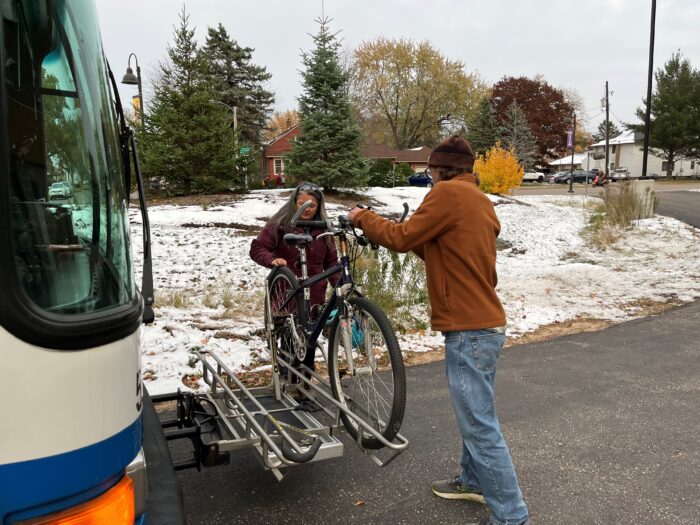
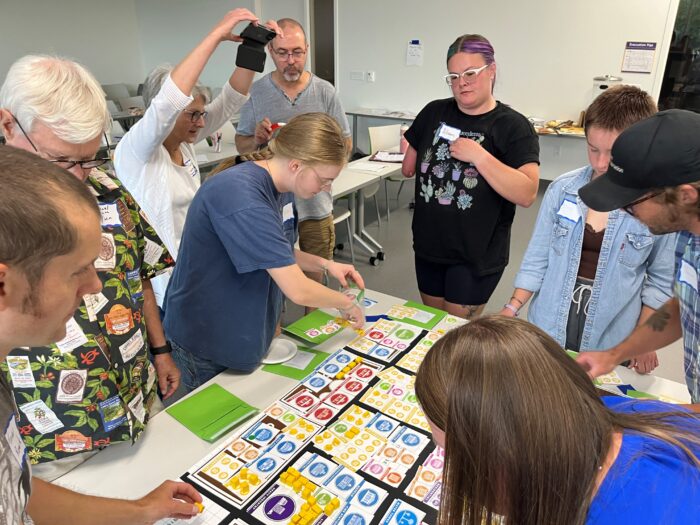
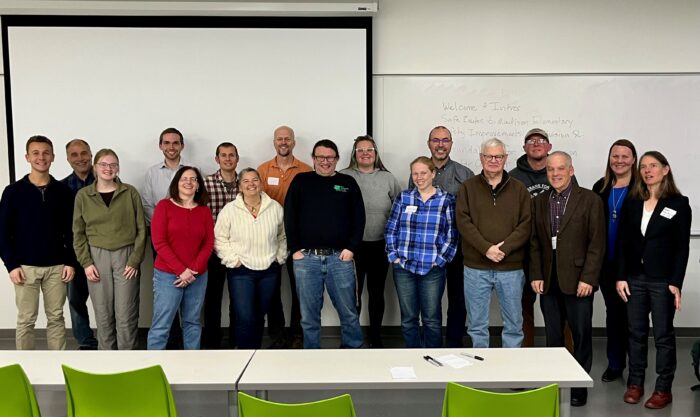
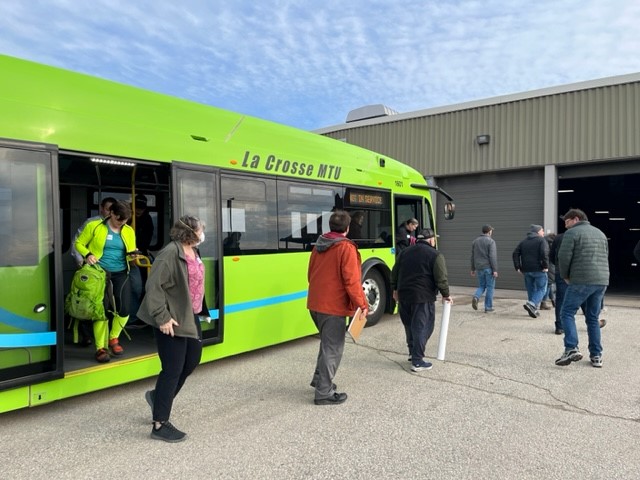
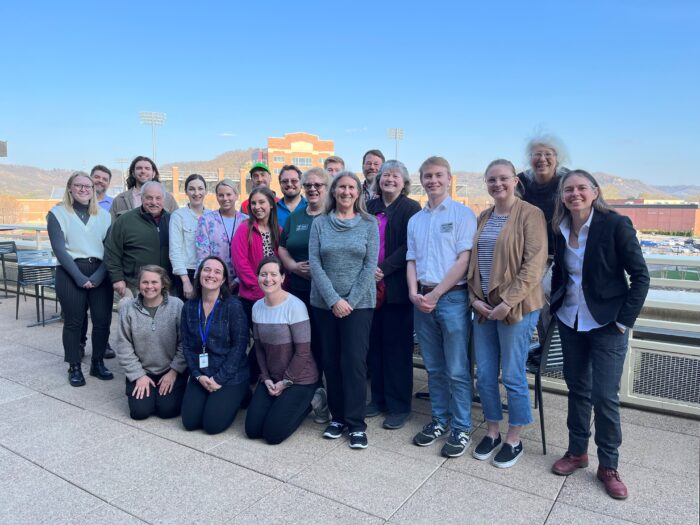
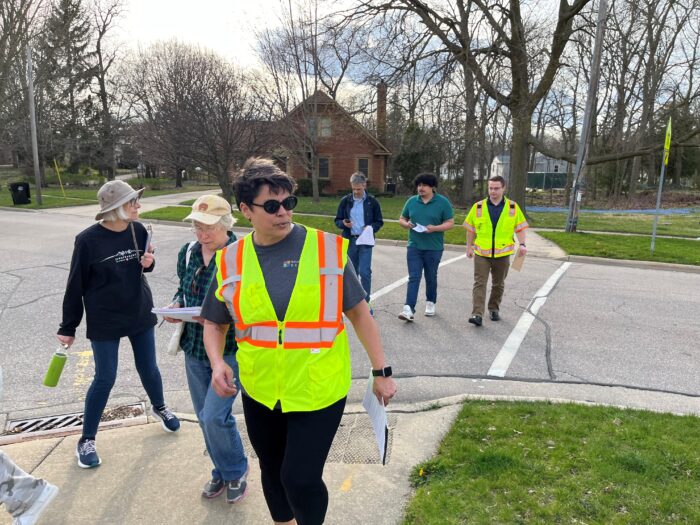
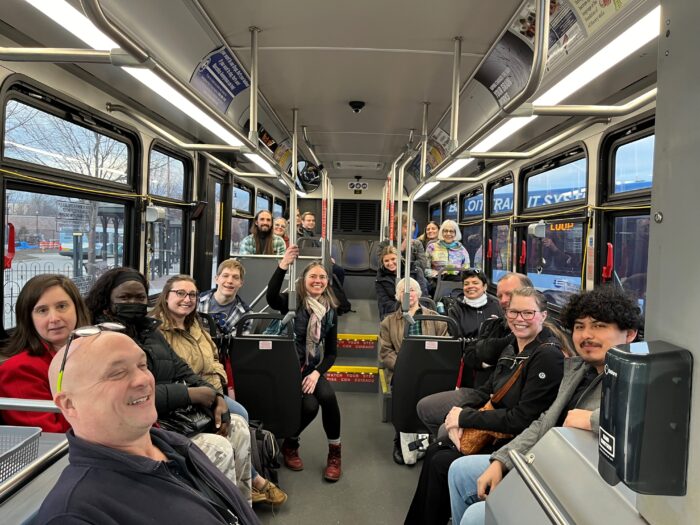
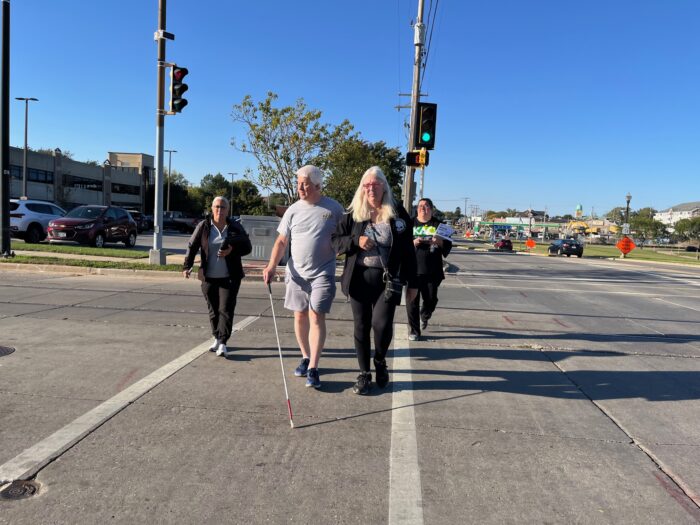
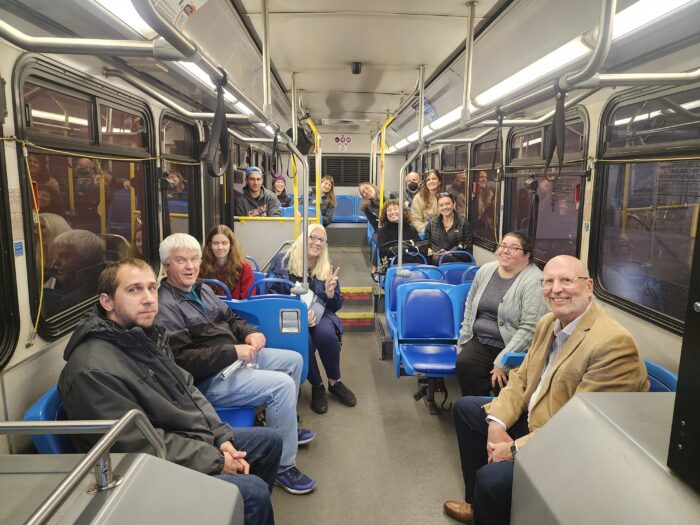
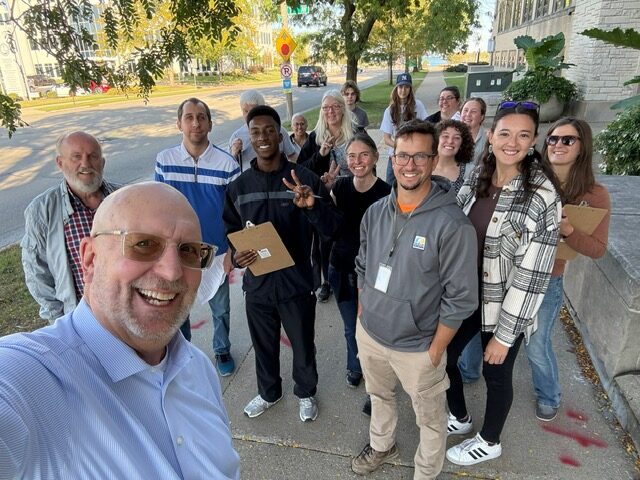
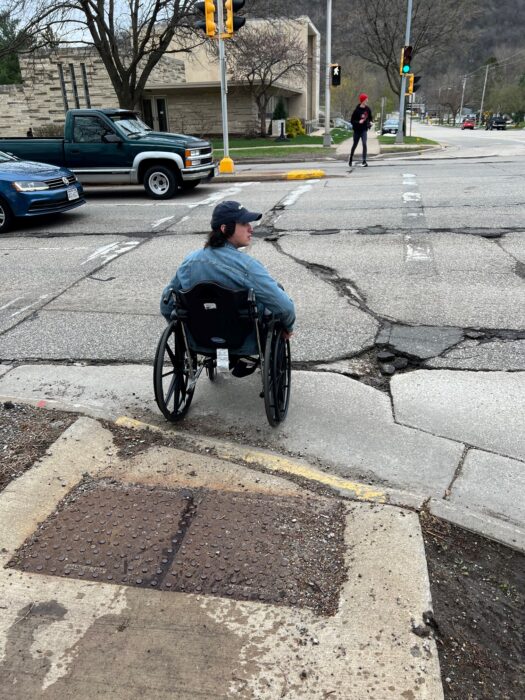
Applications open soon for the Greater Green Bay area in Fall 2025! If you have questions, contact the Executive Director at trevor@1kfriends.org.
See below for FAQs and more information!
What is the Community Transportation Academy?
The Community Transportation Academy is a 9- or 10-week, once-per-week course open to members of the public. The course is free of charge for participants. The Academy helps bridge the gap between community advocates and transportation planning entities and provides community members with skills and knowledge to advocate for safe and accessible transportation networks that work for everyone.
Who is the Community Transportation Academy for?
The Community Transportation Academy is for anyone who is dedicated to learning about transportation planning, implementation, and solving local transportation issues to improve health, equity, sustainability, and accessibility. There is no requirement for previous knowledge or experience, just a desire to learn and be engaged throughout the course. City staff, elected officials, local advocates, college students, high school students, and interested community members are all encouraged to apply. We want a diverse, multi-generational cross-section of the community represented.
When does the class meet?
The class meets on Wednesdays from 4-6pm for nine or ten weeks.
Is the class in-person or virtual?
Both! Typically, there are 4-5 in-person sessions and 5-6 virtual sessions on Zoom. Class materials are available online.
Is there homework?
Yes, but don’t let that scare you off! The instructor has compiled an interesting and engaging set of materials, including readings, audio files, and videos, to supplement what you learn from guest speakers. A final project, in which participants describe a local transportation problem and propose one or more solutions to the problem using tools and knowledge they have acquired during the course, is optional but highly encouraged.
Two hours is a long time for a class. What is the format?
Virtual class sessions will include an introduction of the day’s topic from the course instructor, a guest speaker who is an expert on the subject area with an opportunity for questions from the class. We have an exciting line-up of guest speakers with local, statewide, and national profiles and expertise! There will also be plenty of time for participants to dive deep into discussion of weekly topics and supplementary materials and check in on individual projects and advocacy questions as needed.
In-person sessions will be a little different. The first in-person session will be an introduction to the course and an opportunity for the instructor and participants to meet. Two sessions include tours of local transportation systems. The final class session will be project presentations and a celebration to wrap up the course.
How much does it cost?
Thanks to the generosity of our funders, we are able to offer the Community Transportation Academy free of charge for all participants.
However, we understand that some individuals may still have financial or logistical barriers to participation. We have limited stipends available for assistance. More information is available on the application.
How do I apply?
Applications for the Greater Green Bay Transportation Academy will open in July 2025. If you have any questions about the Academy, contact the Executive Director at trevor@1kfriends.org.
More questions?
Contact Trevor Roark, Executive Director, at trevor@1kfriends.org.
From the La Crosse CTA:
- “More and more communities in Wisconsin, in the U.S., and worldwide realize the importance of increasing safe and accessible alternate transportation options”
- -city council member
- “The class has given me the knowledge and a game plan to talk to my council members with actual solutions versus complaints.”
- -community member
- “This class has made me more compassionate to that fact and helped me prioritize learning more about my local community’s process”
- -local bike shop owner
- “I loved it! I learned something new at every lesson.”
- “I felt like all the sessions were valuable, but some were just more valuable/spoke more to me. My favorite session was “Vision Zero, Safe Streets, and Dangerous by Design.” If you were to keep only one session this would be the one I personally think was the most valuable. It really opens eyes to ALL transit users without putting the blame on the “consumer”/the driver. This session really spoke to me and I learned so much.”
- “…it was obvious there is a strong connection between all modes of transportation and all users of transportation. If we make the roads safer for one group it will impact all other groups.”
- “I found all of the sessions and session speakers very worthwhile and informative. Now that the academy is finished, I wish there was more time built in to dig deeper into the topics. But I’ll plan to do that on my own. But I’ll really miss the interaction with the other academic participants. I learned a lot from their knowledge and experience.”
- “100% I will recommend this class wherever I can! It was such an amazing opportunity and I hope it grows and expands all over the US.”
- “I am leaving the Academy with a wealth of information and a better understanding of transportation in its many forms. Thanks!!”
- “Highly informative, and a great opportunity to meet other people in the community with regards to the issues of transportation and general city planning.”
From the Stevens Point CTA:
- “I now have more knowledge about how things work and what levers to pull.”
- “All the education will give me the ability to know what to fight for, how to, what I’m up against and info to back me up.”
- “I’d say it exceeded my expectations! I learned new things, expanded my network, and it helped inject more hope (in my mind) for the future of our community.”
- “I learned so much and having experts give presentations with Q and A’s. An experience you can’t get from podcasts.”
- “I think it can empower advocates who are floundering in their advocacy or don’t know where to start.”
- “More people need to know and fight for a future that works for everyone.”
*September 3, 2025 – in person
Introductions. Get to know the course, syllabus, and other participants. Meet at UWGB, room TBA.
September 10, 2025 – virtual
Dr. Kirk Harris, Professor at UW Milwaukee’s School of Architecture & Urban Planning (SARUP) will discuss the history and modern implications of racial segregation, post-WWII transportation planning, and urban renewal.
*September 17, 2025 – in person
Regional Planning and the Role of MPOs. Speakers: Lisa Conard and Dan Teaters from Brown County MPO. Meet at Green Bay Metro Transit Center.
*September 24, 2025 – in person
Class walk/roll audit. Exact route TBA.
October 1, 2025 – virtual
Vision Zero, Safe Streets, and Dangerous by Design. Heidi Simon of Smart Growth America will discuss the Dangerous by Design 2024 report, which includes data about traffic fatalities, street design and the inequitable distribution of pedestrian deaths and injuries.
October 8, 2025 – virtual
City Planning and Transportation. Speakers: Stephanie Hummel, AICP and TBD from the City of Green Bay.
*October 15, 2025 – in person
Transit tour with Patty Kiewiz from Green Bay Transit. Meet at Green Bay Metro Transit Center.
October 22, 2025 – virtual
TBA
October 29, 2025 – virtual
TBA
*November 5, 2025 – in person
Project presentations and wrap-up celebration! Meet at UWGB, room TBA.
*April 2, 2025 – in person
Introductions. Get to know the course, syllabus, and other participants.
April 9, 2025 – virtual
Dr. Kirk Harris, Professor at UW Milwaukee’s School of Architecture & Urban Planning (SARUP) will discuss the history and modern implications of racial segregation, post-WWII transportation planning, and urban renewal.
April 16, 2025 – virtual
Livable Communities. Speakers: Steve Schaer from the City of West Allis and Amber Miller from AARP Wisconsin.
April 23, 2025 – virtual
Vision Zero, Safe Streets, and Dangerous by Design. Heidi Simon of Smart Growth America will discuss the Dangerous by Design 2024 report, which includes data about traffic fatalities, street design and the inequitable distribution of pedestrian deaths and injuries.
*April 30, 2025 – in person
Class walk/roll audit. Exact route TBA.
May 7, 2025 – virtual
Complete Streets, Gender Equity, and the Mobility of Care. Speakers: Dr. Carey McAndrews and Lori DiPrete Brown from UW Madison.
*May 14, 2025 – in person
Transit tour with Natalie Marshall and Jesus Ochoa of MCTS.
May 21, 2025 – virtual
Panel Q&A with West Allis and MCTS staff. Speakers: Melinda Dejewski from West Allis Engineering, Natalie Marshall and Jesus Ochoa from MCTS. Other speakers TBA.
*May 28, 2025 – in person
Project presentations and wrap-up celebration!
*September 4, 2024 – in person
Introductions. Get to know the course, syllabus, and other participants.
September 11, 2024 – virtual
Dr. Kirk Harris, Professor at UW Milwaukee’s School of Architecture & Urban Planning (SARUP) will discuss the history and modern implications of racial segregation, post-WWII transportation planning, and urban renewal.
September 18, 2024 – virtual
Vision Zero, Safe Streets, and Dangerous by Design. Heidi Simon of Smart Growth America will discuss the Dangerous by Design 2024 report, which includes data about traffic fatalities, street design and the inequitable distribution of pedestrian deaths and injuries.
September 25, 2024 – virtual
Regional Transportation and KRM. Trevor Jung, City of Racine.
*October 2, 2024 – in person
Class walk/roll audit. We will meet at City Hall and do a walk audit of a portion of downtown and the lakefront. Exact route TBA.
October 9, 2024 – virtual
Parking. Daniel Herriges, Parking Reform Network.
*October 16, 2024 – in person
Transit tour
October 23, 2024 – virtual
Panel discussion featuring City of Kenosha staff.
*October 30, 2024 – in person
Project presentations and wrap-up celebration!
*February 7, 2024 – in person
Introductions. Get to know the course, syllabus, and other participants. Dr. Kirk Harris, Professor at UW Milwaukee’s School of Architecture & Urban Planning (SARUP) will discuss the history and modern implications of racial segregation, post-WWII transportation planning, and urban renewal.
February 14, 2024 – virtual
Local land use patterns, zoning, and parking policy. Speakers: Hilary Rottman from the City of Beloit, Ben Rohr from Vandewalle.
*February 21, 2024 – in person
Transit tour. Speakers: Don Driscoll and Teri Downing, Beloit Transit.
February 28, 2024 – virtual
Vision Zero, Safe Streets, and Dangerous by Design. Heidi Simon of Smart Growth America will discuss the Dangerous by Design 2022 report, which includes data about traffic fatalities, street design and the inequitable distribution of pedestrian deaths and injuries.
March 6, 2024 – virtual
Regional approaches to transportation planning and passenger rail. Guest speakers: T.J. Nee, SLATS and Lee Gibbs & Jim Meyer, AECOM.
March 13, 2024 – virtual
Livable Communities, Complete Streets, and Gender Equity in Transportation Planning. Speakers: Dr. Carey McAndrews, Professor in the Department of Planning and Landscape Architecture at UW-Madison.
*March 20, 2024 – in person
Film Screening: The Street Project. The Street Project is a 50-minute documentary, and an inspiring film about the global, citizen-led fight to make our streets safer.
**March 27, 2024 – no class**
April 3, 2024 – virtual
Small Towns and Big Roads: WisDOT, Advocacy, and Effective Communication. Speaker: Carl Glasemeyer, 1000 Friends of Wisconsin.
*April 10, 2024 – in person
Class walk/roll audit.
*April 17, 2024 – in person
Project presentations and wrap-up celebration!
September 6, 2023 – in person
Introductions. Get to know the course, syllabus, and other participants. Dr. Kirk E. Harris, Professor of Urban Planning at UW Milwaukee, will discuss the history and modern implications of racial segregation, post-WWII transportation planning, and urban renewal. Dr. Anna Haines and Becky Roberts from UWSP will lead an interactive activity.
September 13, 2023 – virtual
Sustainability and land use in transportation planning. Speakers TBD.
September 20, 2023 – virtual
City limits and state highways. Speaker: Carl Glasemeyer, Transportation Policy Analyst at 1000 Friends of Wisconsin.
September 27, 2023 – virtual
Vision Zero, Safe Streets, and Dangerous by Design. Heidi Simon of Transportation for America will discuss the Dangerous by Design 2022 report, which includes data about traffic fatalities, street design and the inequitable distribution of pedestrian deaths and injuries.
October 4, 2023 – in person
Class field trip. We will take a local tour and conduct a walk/roll audit as a class. Exact location TBA.
October 11, 2023 – virtual
Livable communities and safe streets for all. Darrin Wasniewski of AARP Wisconsin will discuss the definition of livable communities and how transportation factors into making a community welcoming and accessible for people of all ages and abilities. Adam Kuhn of Stevens Point and Dominique Swangstu of the Village of Plover will discuss a recent SS4A application and the importance of collaboration.
October 18, 2023 – virtual
Complete Streets. First will be an overview of complete streets, including the history of complete streets policy in Wisconsin and in the City of Stevens Point. Next will be a presentation from UW Madison professors Carey McAndrews and Lori DiPrete Brown, who will discuss gender equity and the role of caregiving in complete streets and transportation planning.
October 25, 2023 – virtual
Advocacy and effective communication. Speaker: Trevor Roark and TBA from the League of Wisconsin Municipalities.
November 1, 2023 – in person
Transit Planning in Small Cities. Stevens Point Transit Director Talin Scheuermann will lead a tour of the transit system and bus stop upgrades.
November 8, 2023 – in person
Project presentations and wrap-up celebration!
February 15, 2023 – in person
Introductions. Get to know the course, syllabus, and other participants. Dr. Kirk E. Harris, Professor of Urban Planning at UW Milwaukee, will discuss the history and modern implications of racial segregation, post-WWII transportation planning, and urban renewal.
February 22, 2023 – virtual
Local and Regional Transportation Plans and Processes. Jackie Eastwood and Peter Fletcher work for La Crosse Area Planning Commission (LAPC) and will discuss the roles and responsibilities of Metropolitan Planning Organizations (MPOs) in local and regional transportation planning.
March 1, 2023 – virtual
Vision Zero, Safe Streets, and Dangerous by Design. Beth Osborne, Director of Transportation for America, will discuss the Dangerous by Design 2022 report, which includes data about traffic fatalities, street design and the inequitable distribution of pedestrian deaths and injuries.
March 8, 2023 – virtual
Livable Communities. Darrin Wasniewski of AARP Wisconsin will discuss the definition of livable communities and how transportation factors into making a community welcoming and accessible for people of all ages and abilities. Dr. Gargi Chadhuri, Professor of Geography at UW La Crosse, will present research she has led with students to map transportation patterns and assess challenges in La Crosse and Onalaska.
March 15, 2023 – spring recess, no class.
March 22, 2023 – in person
Transit Planning in Small Cities. Adam Lorentz, Director of La Crosse MTU, will discuss public transit planning and logistics and lead a tour of the bus facilities in La Crosse.
March 29, 2023 – virtual
Climate Change and Transportation. Gregg May, Transportation Policy Director at 1000 Friends of Wisconsin, and Lewis Kuhlman, Planner for the City of La Crosse, will discuss how transportation impacts climate change and how local governments can address climate change through local climate action plans.
April 5, 2023 – virtual
Complete Streets. First will be an overview of complete streets, including the history of complete streets policy in Wisconsin and in the City of La Crosse. Next will be a presentation from UW Madison professors Carey McAndrews and Lori DiPrete Brown, who will discuss gender equity and the role of caregiving in complete streets and transportation planning.
April 12, 2023 – virtual
Local advocacy. Speakers TBA.
April 19, 2023 – in person
Class field trip. We will take a local tour and conduct a walk/roll audit as a class. Exact location TBA.
April 26, 2023 – in person
Project presentations and wrap-up celebration!
